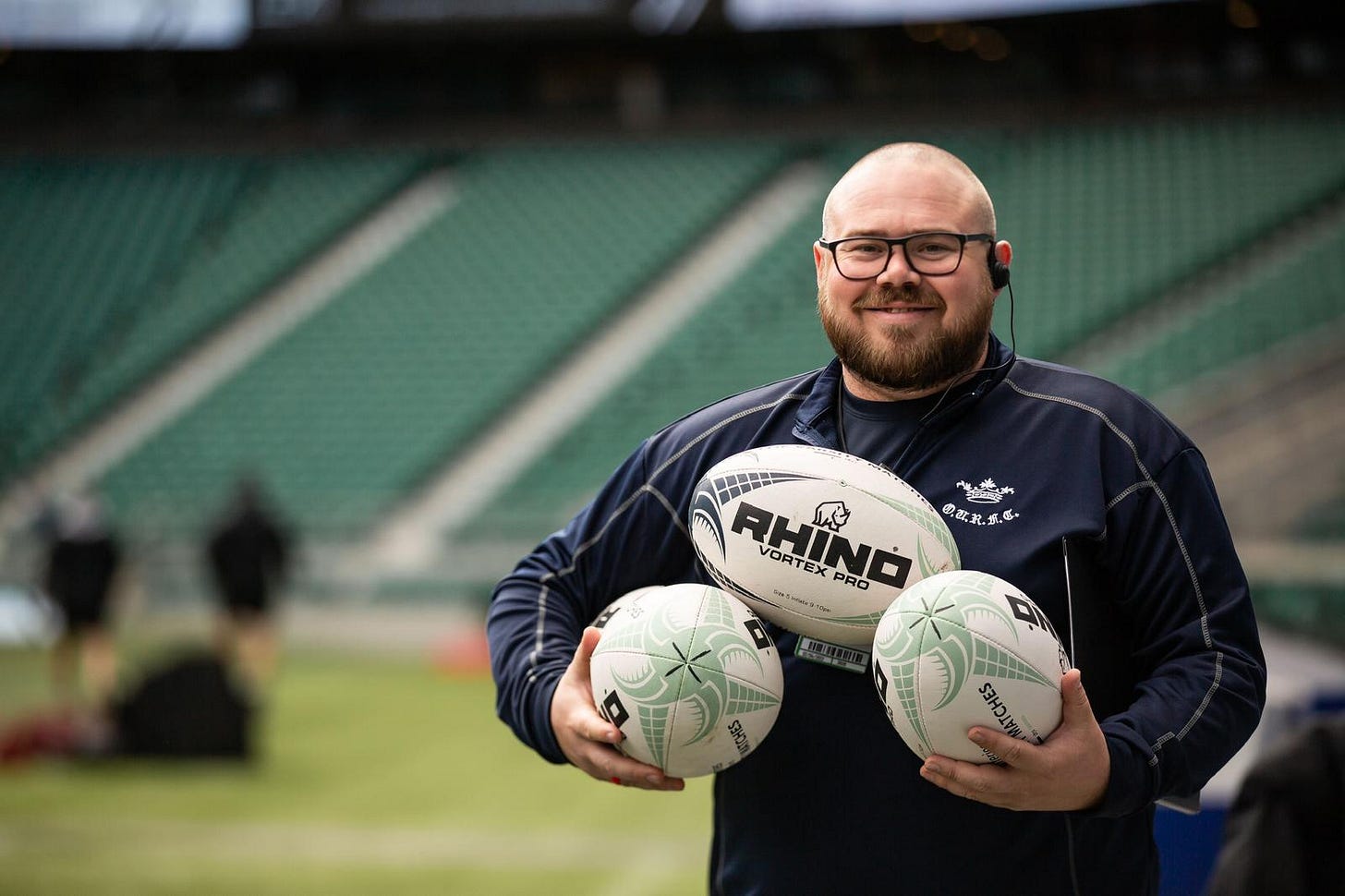What questions to ask to help players get the most out of your sessions
James Clark provides some helpful tips to get you thinking about what questions you can pose players during training. He also discusses reflection after a session and creating team values.
I am currently lead forwards coach at The Henley college for the boys and scrum coach for the girls program as well as coaching age group at Henley Hawks.
I try to change how I engage the people I coach by creating different stimulus to facilitate their development and to keep things fresh and interesting!
Care and empathy form the basis of my coaching. If you truly care for the people you coach, it will be so much easier to understand them as people and support their development.
I’m lucky that I get a lot of contact time with people, which makes it easier to check in regularly in sessions and around the college either through formal 1-2-1s or informal chats around campus.
Reflection is important for coaches, it enables you to keep developing.
I naturally have a negative bias around my coaching so for me it’s really important to identify what was successful first, then I pick the biggest thing I want to improve and take that into the next session.
I reflect best when I’m not judgemental of myself and try to be more curious.
Curiosity is key for coaches. I think coaches should challenge themselves on how well they understand whatever it is they are coaching.
Can a coach simplify something down to its key components and then come up with lots of different ways to challenge players.
Getting into different environments or coaching different age groups will challenge coaches to be more creative in their practice and make them think about how to approach delivery.
Leadership and Team Values
Developing leadership skills within a team all depends on the individuals and the team involved.
In general, I think it’s important to give opportunities for people to lead, find solutions in small groups, allow people to support each other and get people comfortable with communicating with each other effectively and you’ll start to see leaders emerge.
Usually, when setting up team values, I would want a discussion with the all the people involved (both staff and players). This enables me to find out what’s important to all involved and to get a shared understanding.
Team values are more about consistent behaviours within the whole group rather than just words on a poster.
At the college, we already have defined values but it’s still really important that we have similar conversations to develop behaviours consistent with the set values of the college and get a better understanding of why they should be important to us in the group.
When to ask questions during training
The types of sessions I coach can vary. For smaller group sessions and 1-2-1s, it might look very conversational, discussing different ideas or different techniques.
Sessions could also be very ‘tell’ based if I’m introducing something brand new. This would be supported by lots of questions and answers to check and challenge understanding.
This means I’m able to understand how well the information has been communicated.
With larger sessions, interventions from coaches are normally heavily limited. This is to help keep the messaging and coaching very purposeful and impactful, and stops it becoming more background noise.
It also allows space for people to speak up and solve problems in session rather than waiting for a coach to tell them what to do.
Any questions asked would try to connect the new info to something the group already knows. I like to think of this like anchor points for a climber.
The questions could be:
If there’s only 3 ways to go forward in attack, which one would be best in this situation? Why is that the best one?
Using the new lineout calls, how many different ways can we hit front, middle and back?
Now rank them from easy to hard. What benefits do the hard ones give that the easy ones don’t?
These questions are contextual to the session and situation. Observation is key, use the focus of the session as the lense you look at the game with.
Look for the big patterns and form the intervention around that.
For example:
Imagine the session is a tactical one looking at continuity in attack. All my interventions would be based on supporting the team to keep possession and generate tempo.
There might be alot of things that I could intervene and prompt people on. However, focusing on what people need in that moment will make the most difference.
Coaching Philosophy: Development driven, people focused
Coaching Care Creativity now has paid subscriptions for people who want to and are able to support the publication



